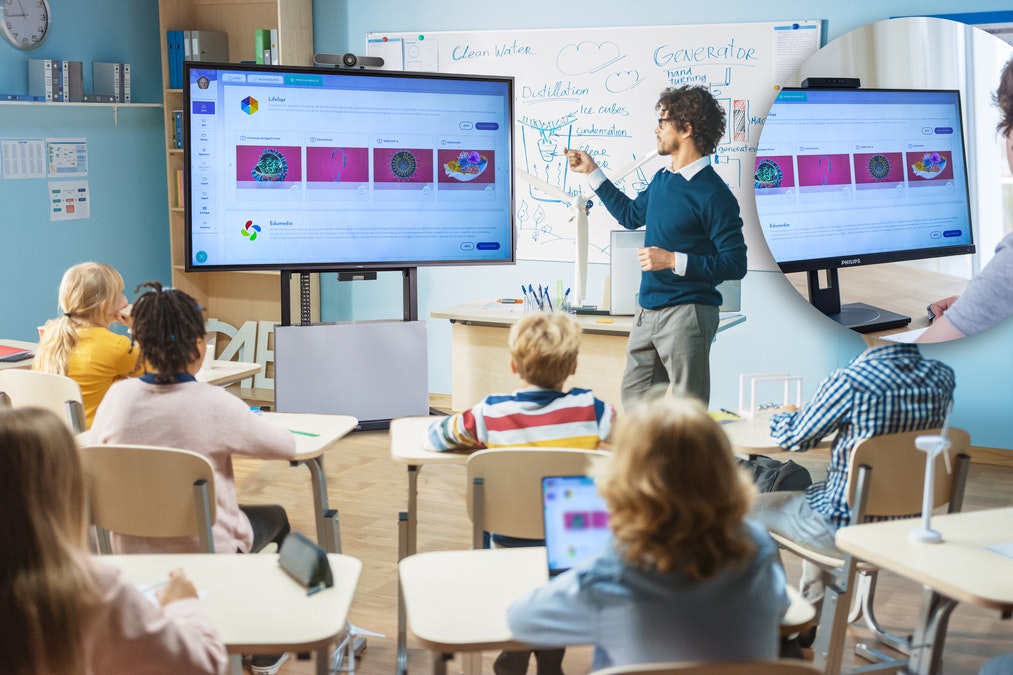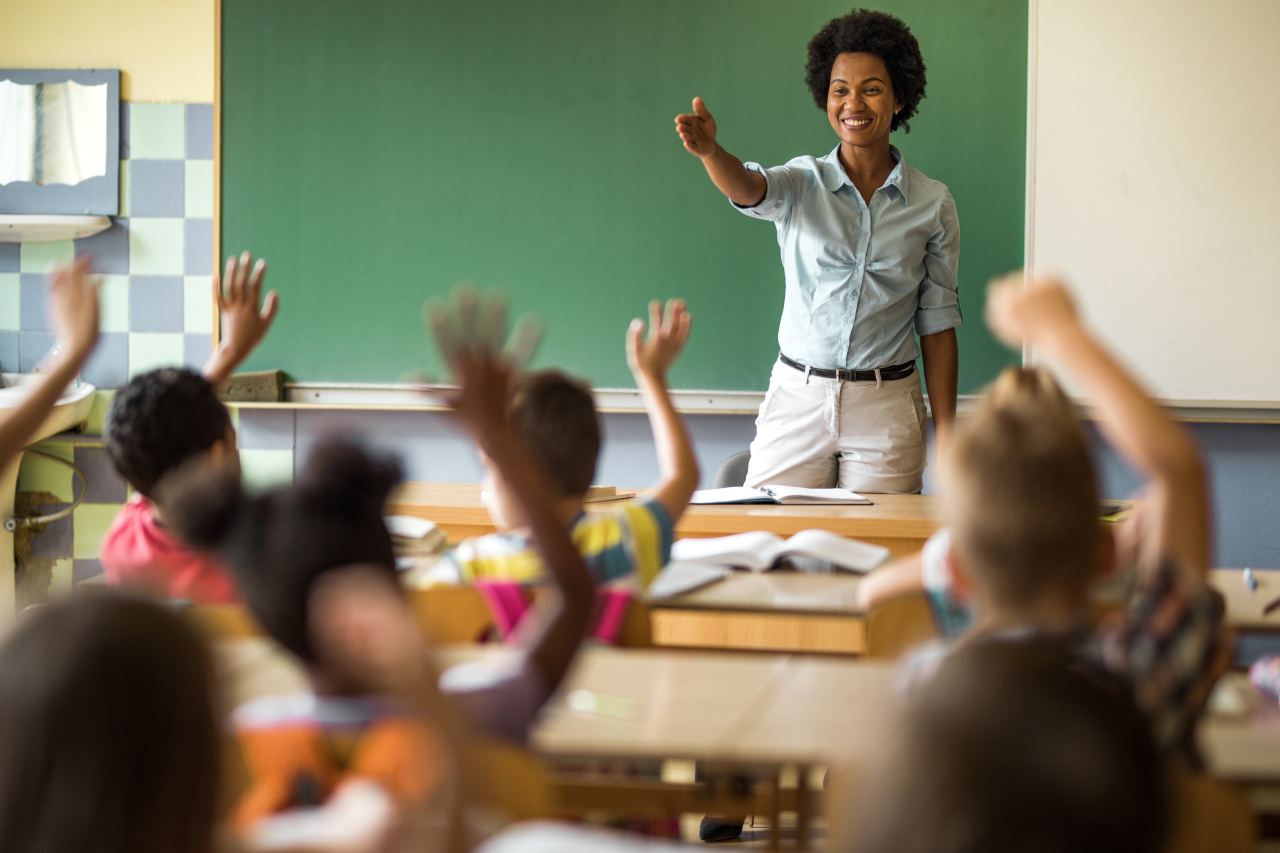Comprehensive Primary Science Tuition Singapore for Primary School Students
Comprehensive Primary Science Tuition Singapore for Primary School Students
Blog Article
A Comprehensive Overview to the Numerous Learning Techniques in Primary Science Direction
The expedition of diverse knowing methods in main scientific research guideline provides an opportunity for educators to improve trainee engagement and comprehension dramatically. By taking a look at hands-on understanding techniques, inquiry-based techniques, and collaborative approaches, we can determine effective methods that provide to various finding out designs.

Hands-On Learning Strategies
Hands-on knowing methods play a crucial role in main scientific research instruction, involving students in active expedition and testing. These methods allow learners to engage directly with materials and sensations, cultivating a much deeper understanding of scientific ideas. By making use of manipulatives, versions, and real-life experiments, educators produce a setting where students can observe, assume, and check their concepts.
Such methods not only boost comprehension yet additionally cultivate important thinking and analytic abilities. When students participate in tasks like constructing simple devices, planting seeds, or conducting chemical responses, they are urged to ask questions and look for solutions with their very own observations. This experiential method aids to demystify complex scientific principles, making them much more easily accessible and relatable.
Furthermore, hands-on learning promotes cooperation amongst peers, as trainees usually work in teams to carry out experiments or share findings. This teamwork not just improves their knowing experience yet additionally creates important social skills. Eventually, incorporating hands-on methods in key scientific research instruction promotes a lifelong love of learning and inquisitiveness about the environment, laying a strong foundation for future scholastic pursuits in science and past.
Inquiry-Based Learning
Inquiry-based understanding is an instructional strategy that encourages pupils to ask concerns, investigate phenomena, and create their very own understanding of scientific principles. This method moves the focus from conventional teacher-led instruction to a much more student-centered experience, where students take the effort in their academic trip. By promoting curiosity, inquiry-based understanding advertises much deeper interaction with the material, allowing pupils to explore topics in a purposeful context.
In practice, this technique frequently includes hands-on experiments, monitorings, and critical reasoning tasks that align very closely with the clinical method. Students are urged to develop hypotheses, layout examinations, and analyze information, which grows essential skills such as problem-solving and logical reasoning. The duty of the teacher in this framework is to assist in expedition, guiding trainees with the inquiry process while encouraging independent idea and partnership.
Moreover, inquiry-based discovering supports a feeling of ownership over the understanding procedure, inspiring students to go after understanding proactively. This method not just enhances understanding of scientific concepts however additionally promotes a long-lasting love for knowing, equipping pupils with the abilities essential to navigate an increasingly intricate globe.
Collaborative Knowing Approaches
Collaborative learning strategies empower pupils to participate in purposeful interactions with peers, cultivating a common obligation for their academic results. In main scientific research guideline, these strategies encourage students to function with each other to discover scientific ideas, address troubles, and carry out experiments (primary science tuition Singapore). websites By taking part in group tasks, students can take advantage of diverse point of views, permitting richer understanding and retention of scientific expertise
One secret element of collaborative discovering is the emphasis on communication skills. Pupils should verbalize their ideas, pay attention actively to others, and work out concepts, every one of which are vital proficiencies in both academic and real-world contexts. This social communication not just improves their understanding of clinical concepts but also promotes synergy and conflict resolution skills.
When pupils see the worth of their payments within a group, they are more likely to take possession of their understanding journey. In general, including joint understanding strategies in main scientific research guideline grows a dynamic learning setting that prepares pupils for future scholastic and social challenges.
Modern Technology Assimilation in Scientific Research
The combination of modern technology in primary science instruction boosts finding out experiences by offering ingenious tools and resources that support various training approaches, consisting of collective learning - primary science tuition Singapore. Making use of electronic systems, simulations, and interactive applications enables students to engage deeply with clinical concepts, assisting in a much more hands-on approach to knowing
Digital labs, for circumstances, make it possible for students to perform experiments safely and effectively, promoting inquiry-based learning. These tools can replicate real-world scientific circumstances, enabling pupils to imagine complicated procedures that would certainly be hard to reproduce in a conventional class setup. Modern technology cultivates interaction and collaboration amongst pupils, as they can share searchings for and work together on tasks through on-line platforms.
Additionally, multimedia presentations and instructional videos can enrich lessons by catering to diverse knowing styles, making abstract principles a lot more available. Information evaluation devices likewise empower pupils to accumulate and translate scientific information, reinforcing vital thinking skills. Overall, the strategic consolidation of modern technology in main scientific research guideline not only enhances involvement however likewise prepares pupils for a technically advanced culture, outfitting them with vital abilities for future scientific endeavors.
Distinguished Instruction Techniques
Differentiated direction methods are vital for dealing with the diverse demands of students in key science education. These strategies allow teachers to tailor their training methods to suit differing abilities, passions, and discovering designs within the classroom. By utilizing set apart instruction, teachers can develop a comprehensive atmosphere that cultivates interaction and improves understanding of clinical principles.
One efficient strategy is to utilize adaptable organizing, which allows trainees to collaborate with peers at comparable skill levels or with differing perspectives. This strategy official source urges peer understanding and advertises critical thinking. Additionally, offering choices in assignments can encourage trainees, enabling them to choose projects that reverberate with their rate of interests while still fulfilling curricular goals.
In addition, integrating tiered tasks is an additional useful strategy. By designing tasks with differing levels of complexity, instructors can make certain that all students are properly challenged, no matter of their efficiency. Making use of formative evaluations to gauge recognizing further enables teachers to adjust their educational techniques dynamically, ensuring that each learner obtains the support they need.
Eventually, applying separated guideline methods in main scientific research education and learning not only enhances trainee discovering results but also grows an interest for science, preparing students for future scholastic pursuits.

Conclusion
In summary, efficient primary science instruction requires a multifaceted strategy that encompasses hands-on discovering, inquiry-based approaches, and collective techniques. The assimilation of technology and separated direction better caters to varied discovering styles, fostering an atmosphere helpful to expedition and vital thinking.
The exploration of diverse understanding methods in primary scientific research instruction presents a chance for teachers to improve trainee engagement and comprehension significantly.Hands-on learning strategies play a critical duty in key scientific research instruction, engaging trainees in active exploration and trial and error.Inquiry-based knowing is an instructional technique that urges pupils to ask inquiries, explore sensations, and create their very own understanding of scientific concepts.Collective learning techniques empower trainees to involve in significant interactions with peers, promoting a shared duty for their academic outcomes. Overall, integrating joint learning strategies in you can find out more main scientific research guideline grows a vibrant knowing atmosphere that prepares pupils for future scholastic and social obstacles.
Report this page